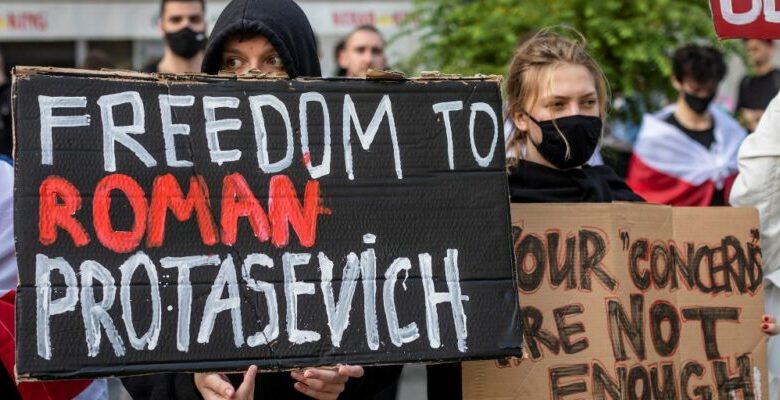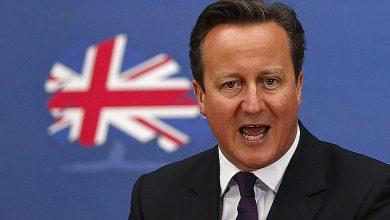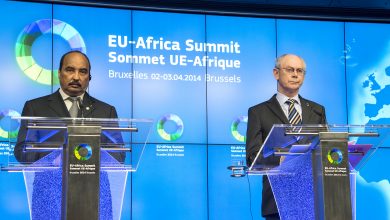With Belarus, the EU Has Nothing to Gain by Waiting

On May 23rd, Lukashenka’s regime shocked Europe by hijacking a Ryanair passenger flight on an Athens-Vilnius route. Belarus forced the plane to make an emergency landing on its soil with the flimsy pretext of a “potential security threat on board” while scrambling a jet fighter for intimidation. There were more than 120 people on board, including Belarusian opposition blogger Roman Pratasevich. Belarusian security forces have kidnapped Pratasevich, who now faces the death penalty, as well as his girlfriend, Sofia Sapega.
To date, the only evidence that Pratasevich is even alive is a video broadcast on the dictatorship’s State television. Here, the journalist bears clear marks of torture and declares – rather unconvincingly – that he has been treated well. This is followed by a “confession” regarding the “crimes” the regime alleges he committed against them. If Lukashenka feels he can get away with it, Pratasevich will be executed by firing squad. It’s a rarely used method even in Belarus, but one the regime has been preparing the ground for by labelling the journalist a “terrorist“, which enables the harshest punishments under what passes for “law” in Belarus.
The fact that a country in Europe is waging such a campaign of terror and despicable brutality against its own people is simply beyond the pale. But Lukashenka isn’t stopping there, as he fights tooth and claw to retain a position of power the rest of the world recognises is not his to have.
To get at Pratasevich and Sapega, Lukashenka has committed an act of State terrorism, directed against an EU-registered plane on an internal EU flight, which was “escorted” by a jet fighter – an act of military aggression that implicitly threatened EU civilians and the plane’s crew with death if they refused to comply. As part of this terror attack, EU citizens were left stranded at Minsk airport until the plane was released. Two passengers who were exercising their right to freedom of movement inside the Union’s borders were brazenly kidnapped.
The gravity of this act would warrant extraordinary measures, but the EU lacks the legal and political mandate required to meet force with force. It does have other tools at its disposal to strike back at Belarus, but is not utilising them too effectively yet.

A Toothless Great Power
The action carried out by Lukashenka against Ryanair would have been unthinkable against an internal Russian or USA flight packed with Russian or American citizens. The jet fighter involved in the act of aggression would have surely been downed, and possibly the airbase responsible for the operation would have been put out of action as well.
Unfortunately, the EU is a peculiar type of Great Power, one endlessly hampered by weakness and internal disunity, and most critically by the pathological shortsightedness of its Member States. The timidity, opportunism, and domestic constraints of national leaders mean that the EU lacks the competencies to respond to the hijacking the way it should – with a military response to protect the lives of EU citizens, force Belarus to respect its own citizens, and punish the perpetrators. But the chronic political anaemia that has taken root in every European capital prevents this. The internal disunity is even worse when considering the issue of Russian involvement, which is even more divisive to Member States.
But if the EU can’t react the way a Great Power should, what can it do? Luckily, it can do a few things, and to some degree it already is. However, a different approach will be needed to exploit the EU’s leverage to the fullest.
The Response So Far
Following an emergency session, the European Council has pushed through a sanctions package that goes some way to inflicting pain on Lukashenka’s regime without overturning the apple cart. The essence of the move is to lock Belarus out of international aviation by banning Belarusian overflight in the EU’s air space, as well as access to EU airports.
The Council has also called “on all EU-based carriers to avoid overflight of Belarus,” and while this measure has largely been heeded, at the time of writing both Ryanair and Alitalia have failed to respect it. Overflight is an important – if secondary – source of precious income for Belarus, particularly on flights bound eastward into Asia. All told, the measure will cost Lukashenka’s regime anywhere between 50-70 million USD.
A carrot has been put forward with the stick: should Belarus embark on a path of democratisation, the EU has a 3 billion EUR aid package waiting in the wings. This message is of course intended primarily for Belarus’ political opposition, but it’s not realistic to expect them to be in a position to take the EU up on its offer anytime soon.
The sanctions also target individuals close to the regime, blacklisting them from various activities. More countermeasures are expected to be announced in the coming days. While effective in their own right, these sanctions are a sign that the EU still hasn’t given up on its wait-and-see strategy towards Belarus. This approach is understandable, since it’s driven by forces outside of the EU’s control, but it’s also misguided. Lukashenka is essentially walking away with impunity and will continue to stir trouble – unless we stop him.

The Russian Problem
Russia benefits from this situation more than anyone else involved. The more Lukashenka loses face in the West, the narrower his political room for manoeuvre becomes. Left with only Russia as a bridge to the rest of the outside world, as well as a patron in economic and military terms, Lukashenka has no choice but to hang on to Putin even tighter. This in turn puts him on an even more confrontational path with the West, in a positive feedback loop.
The EU has tackled this through, primarily, ambivalence. It has sought to punish Lukashenka, but not too harshly, always dangling the hope of a Euro-Belarusian rapprochement should Minsk change its tune.
Some Member States recognise this strategy has failed. Lithuania, Latvia, and Estonia are spearheading a political effort to extend sanctions on Russia as well. This effort isn’t based on the analysis that Putin is the primary beneficiary of the current crisis, although that certainly plays a part. Rather, it rests on the (most probably correct) assumption that the Belarusian KGB lacks the operational capabilities to carry out the espionage operation required to keep tabs of Pratasevich’s trip to Athens without direct Russian assistance. France is also leaning towards this position, as President Macron has become manifestly frustrated with the timidity of European sanctions against its eastward opponents.
But the rest of the Union is a lot more ambivalent. Countries like Italy have a long history of opposition to new rounds of sanctions against Russia, primarily based on (largely imaginary) commercial grounds. Orban’s Hungary is of course always ready to cozy up with the Kremlin, a strategy Budapest calls the “eastern pivot”. Germany, torn by ambivalent political inclinations and its own commercial ties with Russia, is also a source of frustration for those wishing for a tougher EU response.
We Have Nothing to Gain by Waiting
That, however, doesn’t mean the situation is hopeless. Even ignoring Russia’s involvement and sticking with current sanctions against the Kremlin, and even within the current mandate of the EU, there is considerable room to manoeuvre and develop a better foreign policy towards Belarus, one much more effective at pursuing Brussels’ objectives and interests.
For a start, the loss of overflight fees will not bankrupt Lukashenka’s regime, but other countermeasures might. Large State-owned companies are the primary pillar on which Lukashenka’s regime lays its foundations. These oligarchs form the elite in the country, provide precious connections to Russia and the rest of the world, and bankroll the heavy militarisation of society required to maintain Lukashenka’s illegal hold on power. Hitting these companies would mean striking at Lukashenka where it actually hurts.
One such example is Belarusian mining and extraction company Belaruskali, whose employees are deprived of the right to strike – among others. Belaruskali enjoys strong connections with a Norwegian energy giant, Yara, which acts as a gateway into the European Economic Area – of which Norway is a member. Why should this situation continue, in a context where Belarus has clearly decided to douse its bridge with Europe in gasoline, and burn it?

The Americans, untroubled by the internal division and uncertainty that hampers the EU’s every move, have been following precisely this strategy, heaping so many economic sanctions on Belarusian refineries that Russia has been forced to cut its oil exports to Minsk. These oil exports, which are subsidised by the Kremlin, are the economic lifeline of the regime. Cutting it would do more to restrain Lukashenka’s bloodthirst than a thousand overflight restrictions.
Another low-hanging fruit that would make sure sanctions are not a half-measure would be to restrict the sale and holding of Belarusian treasury bonds. No financial institution inside Europe should help bankroll the regime that is going to put that cash flow into even more repression of its own citizens. Other key Belarusian economic interests, such as the illegal smuggling of cigarettes from and into the EU (which has reached truly dazzling proportions), would make for easy targets for any concerted response. It would also very quickly exert financial pressure on Lukashenka.
The only carrot Europe should offer to Lukashenka is to ease some of the restrictions if Minsk releases its political prisoners. This doesn’t mean Pratasevich and Sapega alone. There are now hundreds of political prisoners lost inside the depths of the Belarusian security apparatus, a number that keeps growing ever since the parody of national elections held last year. Only by de-escalating his war against his own people should Lukashenka be able to win some breathing room. And even then, the ultimate objective should always be his removal from power, by any means necessary.
Belarus has turned into a black hole of repression and State-sanctioned violence right at the border with the EU. The poison pouring out of Minsk is beginning to cross the border, threatening the lives and safety of European citizens as well as the opposition figures that, at this critical juncture, should enjoy our protection. It is clear that the strategy of half-measures has failed. Lukashenka will keep stirring up trouble unless he’s unable to, and it is up to us to make him stop. That will, unfortunately, require European national leaders to take their heads out of the sand. One wonders how bad things will have to get before they are forced to do so.





